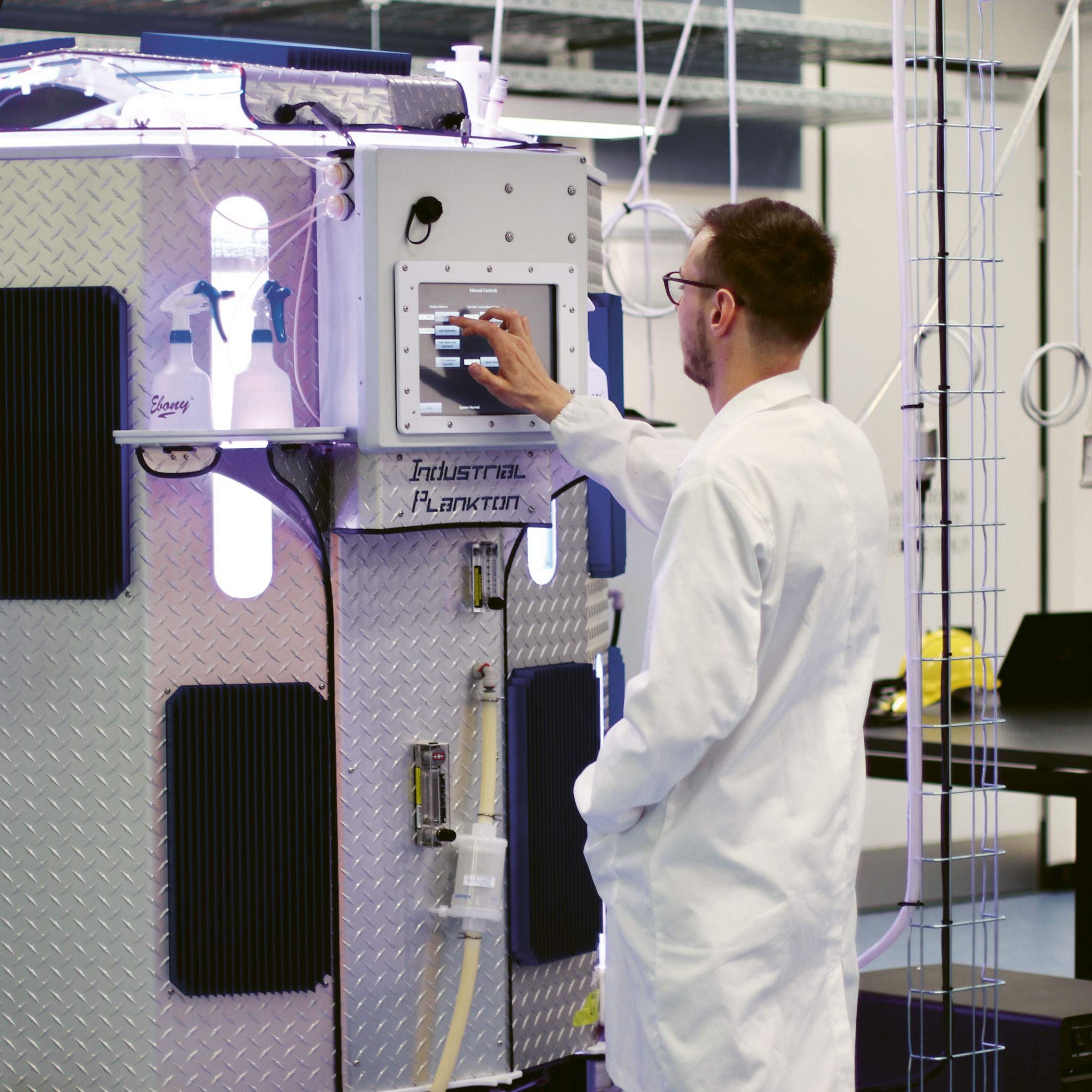Transforming the everyday / Global
Better data access can save the climate
Companies need to understand how and where emissions occur in their supply chains, which ones are easiest to eliminate and how they can offset the remainder. With the Estainium network, Siemens is helping companies achieve these aims with blockchain technology.
A digital thread for green solutions
In the quest for a cleaner, greener future, manufacturers across the world are eager to place themselves at the forefront of decarbonisation. But for industries in which emissions are unavoidable today, what are the options?
One possible solution is carbon sinks: natural systems that store carbon-containing compounds, removing carbon dioxide from the atmosphere. The idea is that companies can invest in projects such as tree planting and forest preservation initiatives as a method of offsetting their own emissions.

Carbons sinks such as this algae bioreactor help to store unavoidable carbon emissions
The reality, of course, is a little trickier. It is currently difficult to accurately connect sinks with their emission sources, leaving the door wide open for fraudulent activity; the same sink can be sold as a solution to multiple partners, thus negating its impact. What’s more, when companies use sinks as an offsetting solution, they are often failing to account for the carbon emissions that occur further down their supply chain. According to a CDP Global Supply Chain Report, industrial supply chains often account for more than 90 per cent of greenhouse gas emissions. To effectively tackle emissions, companies need to accurately pinpoint where exactly they’re produced – and by whom. “What is needed is full transparency on a granular level and data you can trust as a consumer,” says Professor Jochen Deuse, who currently holds a dual appointment with TU Dortmund and the University of Technology Sydney.
Professor Deuse is researching how algae-based sink technologies can be used to offset CO2 emissions
As part of his work in Sydney, Deuse is currently researching how algae-based sink technologies can be used to offset CO2 emissions. (Algae is many times more efficient than trees in removing CO2 from the atmosphere.) The project is also looking at ways in which this carbon absorption can be accurately and seamlessly measured during production, while ensuring that data is accessible for relevant partners and stakeholders. “Gaining transparency and a better understanding of where emission is happening, where absorption is happening and how to link this and get the data right is very important,” adds Deuse.
SiGREEN, a software solution from Siemens, is one way of achieving this. It essentially operates as a business platform: enabling partners along value chains to accurately quantify product carbon footprints (PCFs) and connect them to sinks such as algae farms. It is then possible to pinpoint and offset emissions along the entire global supply chains. In tandem, Siemens, UTS and 13 other members have established the Estainium Association. It provides access to an open, low-emissions blockchain that allows data to be accessed and shared in real-time.
The hope is that greater transparency and more direct access can help the carbon offset market to grow. So it’s not a question of whether algae farms alone can make net-zero a reality but how accurately measuring, establishing and relaying the impact of sink solutions like them can give us the best possible chance to speed up the transition. “We’re looking at least another decade before becoming carbon neutral,” says Deuse. “But I’m very confident that we’ll get very good transparency in a much shorter time.”
Read more here.


